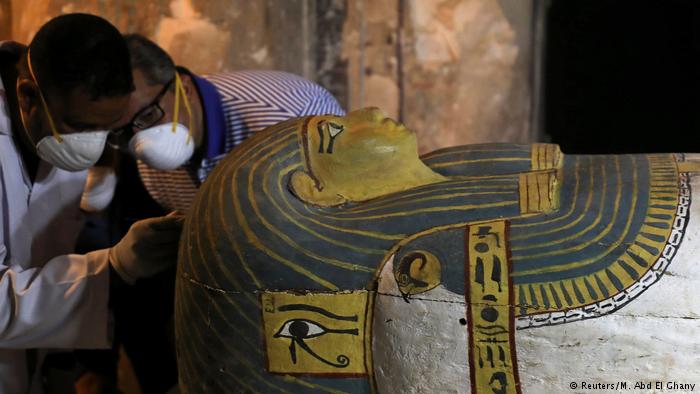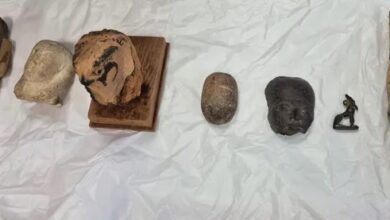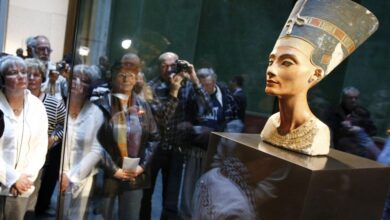Cleopatra styled herself an immortal, and she’s certainly had the longevity to prove it. Her afterlife has been fluid–shaped, disassembled and transformed according to the needs of storytellers, be they her contemporary Roman foes or golden-age Hollywood directors.
This presents some difficulties for a conscientious biographer. How to treat a figure swaddled in 2,000 years’ worth of infamy? Stacy Schiff, who has written fine accounts of Vera Nabakov and Antoine de Saint-Exupery, two elusive figures in their own right, admirably acknowledges the challenges. “To restore Cleopatra is as much to salvage the few facts as to peel away the encrusted myth and hoary propaganda,” she writes, in her new biography of the ancient queen, “Cleopatra: A Life.”
The “few” facts (very few–there’s not even an accurate idea of what she looked like) in question have a plus side. Schiff clearly enjoys her freedom from the pressure to document every quotidian detail, writing in a breezy, epigrammatic style that delivers information without being bogged down in minutiae. She has a knack for painting succinct, vivid tableaus in a few deft strokes. On the bustling, intensely cosmopolitan capital of Alexandria, she writes, “Altogether it was a mood-altering city of extreme sensuality and high intellectualism, the Paris of the ancient world: the place to go to spend your fortune, write your poetry, find (or forget) a romance, restore your health, reinvent yourself.”
Rome, on the other hand, is “a gloomy welter of crooked, congested streets and no main avenue and no central plan, among muddy pigs and soup vendors and artisans’ shops that tumbled out onto footways.”
Even amidst this precisely and enjoyably rendered wealth of detail, the dearth of reliable data regarding the principal character leaves Schiff with enormous gaps to maneuver around. A better subtitle for this book might have been “A World.” To help patch over the holes, Schiff elaborates upon the textures of Egyptian and Roman life, detailing the means of royal child-rearing to substitute for an account of Cleopatra’s missing childhood and sketching the procedures of childbirth in the ancient world in place of hard details about Cleopatra’s delivery of Caesarion, her first child and possibly Julius Caesar’s son. These elaborations are not unwelcome for the curious reader, but to gain a concrete idea of the textures and methods of ancient Egyptian life, one should probably look further than this brief (with notes and an index, “Cleopatra” is still less than 400 pages long,) work written for a mass audience.
Without personal documents of any kind and few reliable sources, Schiff must extract a personality mostly from context. It’s a risky move, but at least you can’t beat the circumstances. As supreme ruler of a rich, powerful and cultured civilization, Cleopatra stood at the close of the Hellenic Age and the beginning of the Roman Empire—the world was literally breaking apart and reassembling itself around her. In the midst of this tumult, Cleopatra ably micromanaged her wealthy and bureaucratic kingdom, while jockeying for position among her domestic rivals and the warring factions of the imploding Roman Republic.
The portrait that emerges is one of a hardheaded leader and quick-thinking politician; a supreme ruler whose magnetic personality, haughty airs and abundant power alternately won the admiration and aroused the envy and ire of the world’s greatest superpower. Certainly, this forms a needed corrective to the long-held image of Cleopatra as a decadent, bewitching seductress, or, worse, a depraved, lust-ridden witch (slander from numerous Roman historians who celebrated and moralized on her defeat at the hands of Augustus).
But it’s with Schiff’s treatment of the major affairs of Cleopatra’s life–a young woman with numerous rivals, the faintly desperate alliance with Julius Caesar that cemented her power, and then, as a revered monarch through the ultimately fatal entanglement with Marc Antony–that we run into trouble.
Schiff thinks well of her subject, and takes the view that, although questions of politics certainly came into play, both of the queen’s major relationships were based on love, or at least genuine attraction. She paints Cleopatra and Antony as something of a high-powered celebrity couple–living large and outrageously, eagerly helping the other consolidate and flaunt their power. It’s a convincing setup, not least because in today’s milieu of Clintons and Brangelinas, it rings familiar, but also because it’s recalls what we’ve always been told about their behavior.
But such parallels are misleading. Cleopatra’s world was one in which incest, assassination and wholesale slaughter of friends and relatives were considered par for the course when it came to politics. As someone who’d disposed of three siblings in order to keep her throne, Cleopatra’s attitude toward love may have been unrecognizable as such to a reader of today.
Schiff’s considerable charm has much to do with her arid sense of irony toward this disconnect between old and new. She seldom loses a chance to comment on the more piquant tidbits of the ancient world; her description of the young Herod, far from the stodgy king of the Bible, is particularly enjoyable. She calls his spouse “the cool, exceptionally beautiful wife who had married him as a teenager, and who, to his frustration, somehow could never get past the fact that Herod had murdered half of her family.”
Ultimately, Schiff’s portrayal of the queen as a shrewd, wily player who made a bad gamble on a man, and who deftly bested a sea of hostile circumstances until she didn’t, is plausible, if a bit hollow. But, considering the brutal and alien character of the times in which Cleopatra lived, perhaps it’s best to let the myth-makers have their way.




